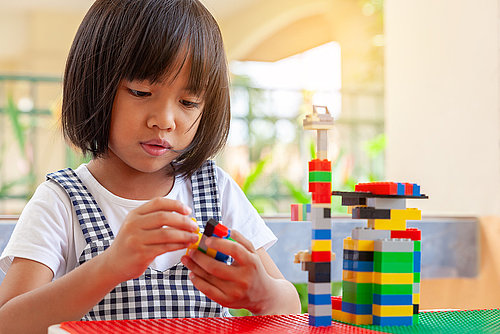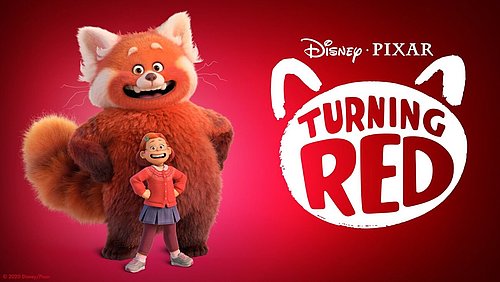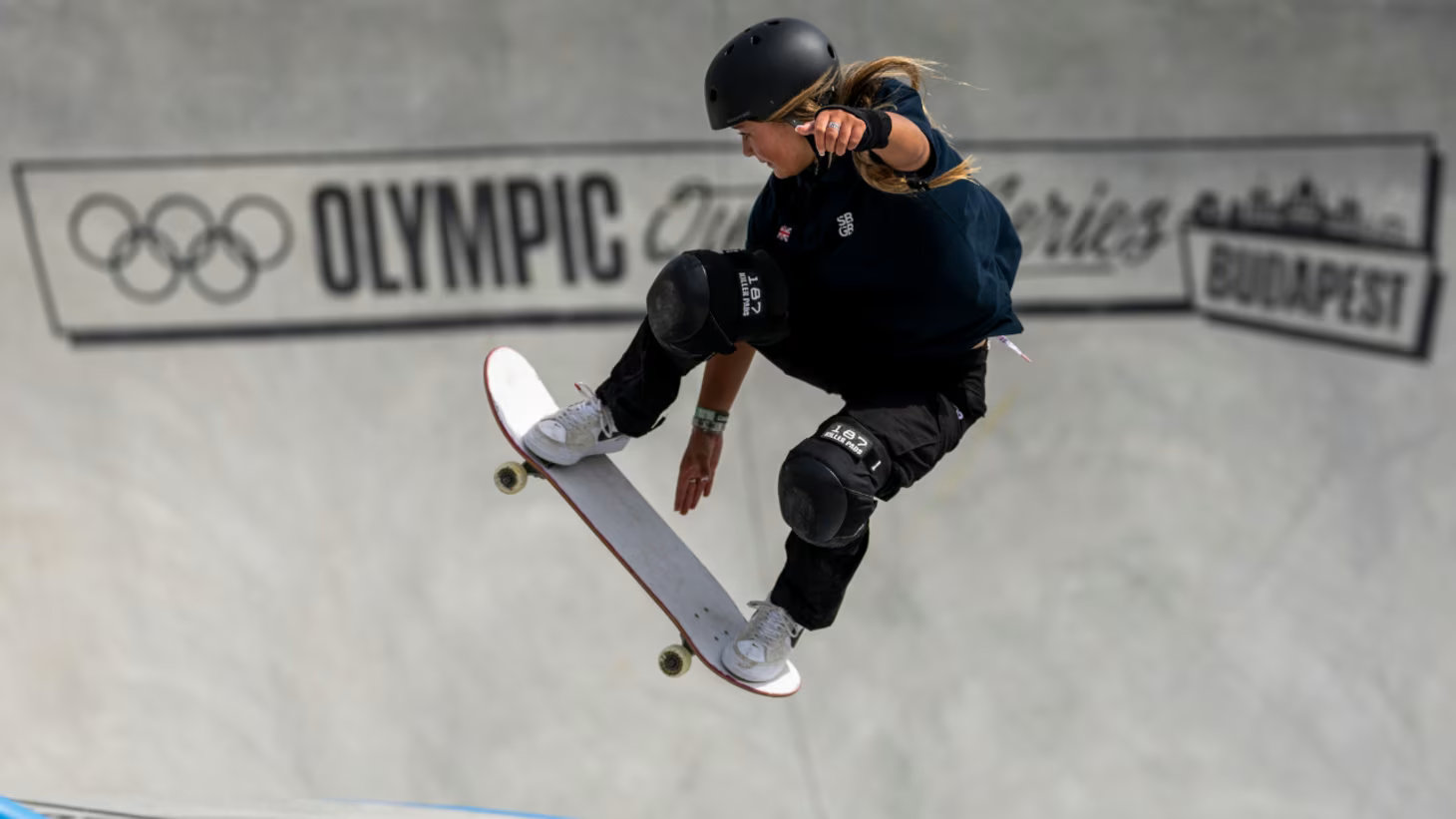
Lifestyle
Research | Social media | Marketing
Blog
From Classrooms to Medals: Meet the next Generation of Olympic and Paralympic Stars

As September 8th marks the end of the 2024 Paris Olympics and Paralympics, the international sporting community is redirecting its attention elsewhere worldwide. We, however, are still caught up in the whirlwind of excitement surrounding these incredible events: with controversy and opportunity erupting on every global stage, it’s no surprise that Paris has left us in awe and with much to contemplate.
With every camera in the world focused on these athletes, there has been a series of internet sensations born from reactive social media commentary. We saw Imane Khelif face online abuse and harassment, the making of a meme out of Rachel Gunn and the skyrocketing popularity of Ilona Maher as diverging outcomes of social media users’ reactive content commenting on the Olympics. While these sensationalist reactions to the international sporting stage all have their significant standing in global reporting, we think there is a category of athletes seriously lacking from the spotlight: under 18-year-olds.
Imagine your high-school peer group. You're worried about your history report, your best friend is too nervous to talk to their crush and your classmate is trying to hide a blemish under their fringe. Now imagine you are scheduled to compete in an ancient and universal sporting event, broadcast all around the world to millions of viewers every minute, with top-level global athletes and the opportunity of a lifetime at your fingertips. How many people can say they have experienced those two scenarios in the same week?
For the lucky few, this was exactly the case. We saw several teenage competitors across the Olympics and Paralympics in Paris this year, representing their countries at an extraordinarily young age and with impressive levels of skill and technique. These competitors also bring a fresh perspective to the meaning of being a professional athlete, including the meaning of sports as a community building past-time and the value of individual personalities shining through in group settings.
The youngest competitor we saw this year was Zheng Haohao, 11-year-old (and 11 months) Chinese skateboarder who finished 18th in the preliminary round of the women’s skateboarding park, which was eventually won by Australian Arisa Trew at 14-years-old. Also in the women’s skateboarding park was 16-year-old Sky Brown, second-time GB bronze medalist for the event with a place on the podium in both Paris and Tokyo.
Not only are these young athletes incredibly impressive, but they also bring their own sense of style and meaning to the game. Trew will not only be known as the youngest medalist to come out of Paris 2024, but she was also the first female to land a 720 and 900 skateboard trick in competition, sporting her signature neon pink helmet and socks through all events. As a Teen Laureus Award winner, Trew said “I want to be my own self. I want people to know that I’m a girly girl”.
Other barriers, such as major losses and potential health setbacks, are not enough to stop young athletes from fulfilling their dreams. Sky Brown turned her attention to skateboarding only after she narrowly missed her qualifying score for Paris 2024 surfing. Rather than allow disappointment to overwhelm her, she doubled down and stepped up. Even with an injury and heavy wrapping during competition, Brown displayed incredible perseverance and determination to achieve her goals by achieving her second Olympic medal in Paris 2024.
Skateboarding was far from the only event to see young people achieve their goals: athletics and gymnastics also saw young athlete podium placers breaking new grounds across the Olympics and Paralympics. Tiana Sumanasekera (16), who was 8-year-old when Simone Biles competed in Rio 2016 Olympics, now trains with her on-screen idol in preparation for the LA 2028 event; and 13-year-old swimmer Iona Winnifrith achieved silver in the 100m breastroke.
Other athletes of note include Summer McIntosh, the 18-year-old two-time Olympiad swimmer who raced alongside her childhood idol Katie Ledecky this past summer and walked away with a silver medal to show for it; 17-year-old Pau Cubarsi was the youngest player to represent Spain at the 2024 Paris Olympic Games as a professional footballer; and Quincy Wilson, youngest ever USA male to compete in an Olympic track and field event, called the opportunity a “dream come true” as he was “100% [himself]” for the experience.
These athletes represent an increasing youth presence in the sporting community, letting the world know that there is no minimum age to hard work and incredible talent. Not are they only amazing representatives of their countries and top-level athletic ability, these young athletes are unbelievable idols to their peers around the world as examples of determination and self-expression.
Increasing interest in sports amongst young people can be achieved through letting them know that there are opportunities available to them: seeing others like them on-screen allows children to visualize themselves in those same situations and, while no one can just decide to apply for the Olympics, they can see themselves taking changes they otherwise wouldn’t. I, for one, cannot wait to see the increase in the number of young people overcoming their personal challenges in the name of trying something new or to keep pushing for what they believe in.
Additionally, increasing youth fandom can be achieved by creating a personal connection or identification between the fan and the athlete. A child seeing someone their own age on screen will make it easier for them to take an interest in the athlete or sport, as they share common life experiences and challenges with that figure. This sense of similarity bolsters a young fan’s passion for sports and athleticism, making them more invested in the event and surrounding fandom experiences.
The presence of youth athleticism in the Paris 2024 Olympics and Paralympics sets a precedent going forward: there is no limit to what some people can achieve, and young people have as much of a chance as anyone else to achieve stardom and great feats of athleticism on the global sporting stage. We cannot wait to see how the events of this year's Olympics and Paralympics inspire the next generation of youth athletes in Los Angeles, 2028.
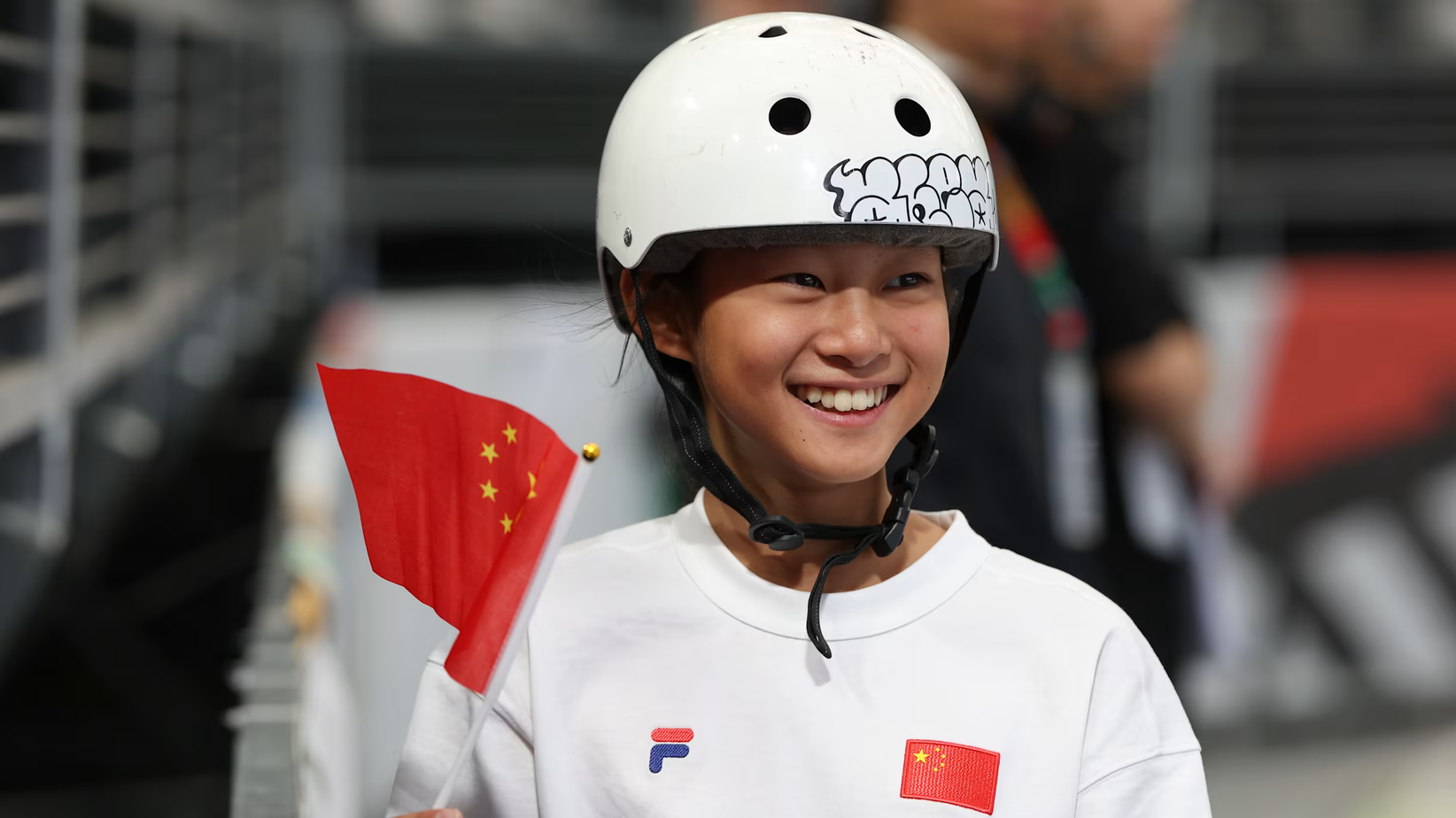
The youngest competitor we saw this year was Zheng Haohao, 11-year-old (and 11 months) Chinese skateboarder who finished 18th in the preliminary round of the women’s skateboarding park, which was eventually won by Australian Arisa Trew at 14-years-old. Also in the women’s skateboarding park was 16-year-old Sky Brown, second-time GB bronze medalist for the event with a place on the podium in both Paris and Tokyo.
Not only are these young athletes incredibly impressive, but they also bring their own sense of style and meaning to the game. Trew will not only be known as the youngest medalist to come out of Paris 2024, but she was also the first female to land a 720 and 900 skateboard trick in competition, sporting her signature neon pink helmet and socks through all events. As a Teen Laureus Award winner, Trew said “I want to be my own self. I want people to know that I’m a girly girl”.
Other barriers, such as major losses and potential health setbacks, are not enough to stop young athletes from fulfilling their dreams. Sky Brown turned her attention to skateboarding only after she narrowly missed her qualifying score for Paris 2024 surfing. Rather than allow disappointment to overwhelm her, she doubled down and stepped up. Even with an injury and heavy wrapping during competition, Brown displayed incredible perseverance and determination to achieve her goals by achieving her second Olympic medal in Paris 2024.
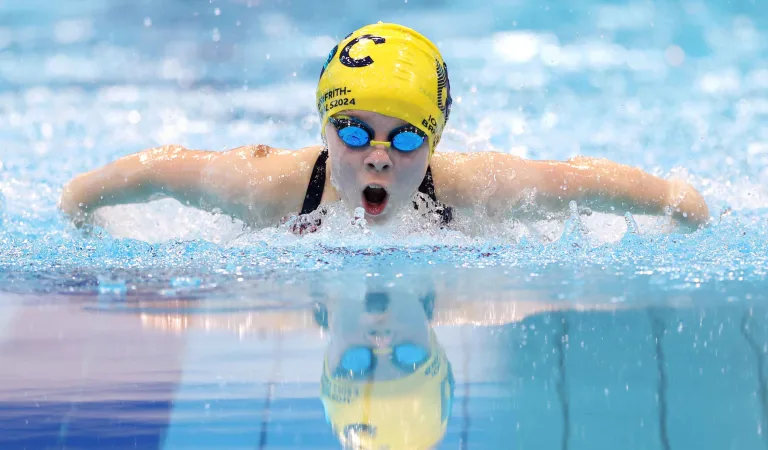
Skateboarding was far from the only event to see young people achieve their goals: athletics and gymnastics also saw young athlete podium placers breaking new grounds across the Olympics and Paralympics. Tiana Sumanasekera (16), who was 8-year-old when Simone Biles competed in Rio 2016 Olympics, now trains with her on-screen idol in preparation for the LA 2028 event; and 13-year-old swimmer Iona Winnifrith achieved silver in the 100m breathstroke.
Other athletes of note include Summer McIntosh, the 18-year-old two-time Olympiad swimmer who raced alongside her childhood idol Katie Ledecky this past summer and walked away with a silver medal to show for it; 17-year-old Pau Cubarsi was the youngest player to represent Spain at the 2024 Paris Olympic Games as a professional footballer; and Quincy Wilson, youngest ever USA male to compete in an Olympic track and field event, called the opportunity a “dream come true” as he was “100% [himself]” for the experience.
These athletes represent an increasing youth presence in the sporting community, letting the world know that there is no minimum age to hard work and incredible talent. Not are they only amazing representatives of their countries and top-level athletic ability, these young athletes are unbelievable idols to their peers around the world as examples of determination and self-expression.
Increasing interest in sports amongst young people can be achieved through letting them know that there are opportunities available to them: seeing others like them on-screen allows children to visualize themselves in those same situations and, while no one can just decide to apply for the Olympics, they can see themselves taking changes they otherwise wouldn’t. I, for one, cannot wait to see the increase in the number of young people overcoming their personal challenges in the name of trying something new or to keep pushing for what they believe in.
Additionally, increasing youth fandom can be achieved by creating a personal connection or identification between the fan and the athlete. A child seeing someone their own age on screen will make it easier for them to take an interest in the athlete or sport, as they share common life experiences and challenges with that figure. This sense of similarity bolsters a young fan’s passion for sports and athleticism, making them more invested in the event and surrounding fandom experiences.
The presence of youth athleticism in the Paris 2024 Olympics and Paralympics sets a precedent going forward: there is no limit to what some people can achieve, and young people have as much of a chance as anyone else to achieve stardom and great feats of athleticism on the global sporting stage. We cannot wait to see how the events of this year's Olympics and Paralympics inspire the next generation of youth athletes in Los Angeles, 2028.

